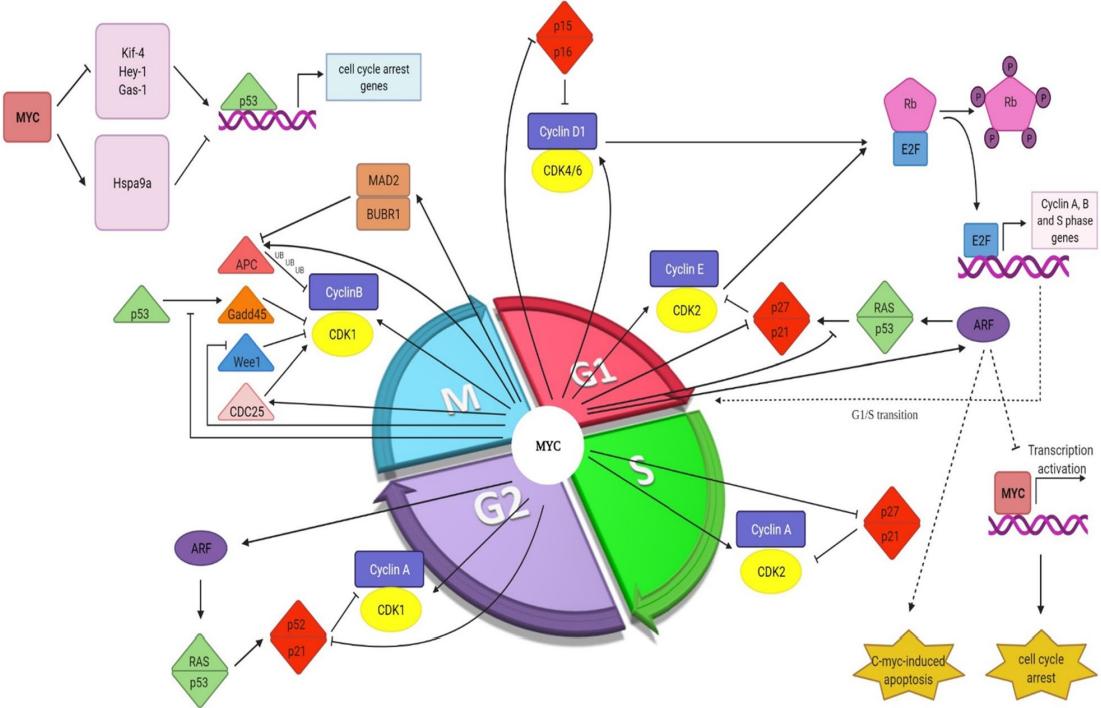NAA Services for Anti-c-Myc Antibodies
With strong expertise and extensive experience in antibody detection and disease-related antigen analysis, scientists of Creative Biolabs are capable of satisfying any of your specific demand. Nowadays, we can provide a full range of anti-c-myc marker detection services. Our state-of-art technical platform and professional scientists will be helpful in your entire project.
Background of Anti-c-myc Antibodies
Myc is a family of regulator genes, and proto-oncogenes are involved in coding transcription factors. The myc family composed of three related human genes: c-myc, l-myc, and n-myc. c-myc was the first discovered gene in this family that homologous to the viral gene v-myc. c-myc is often constitutively expressed in cancers, which causes the increased expression of many genes, some of which play a role in cell proliferation and contribute to the formation of cancer. c-myc is a type of tumor-associated antigen (TAA). Abnormal expression of c-myc in tumors can be perceived as foreign antigens and autoantibodies, which are subsequently produced. Previous studies showed that anti-c-myc autoantibodies could serve as diagnostic biomarkers in solid tumors, including lung cancer, hepatocellular carcinoma, and esophageal squamous cell carcinoma.
 Fig.1 Myc collaboration in cell cycle progression involves multiple mechanisms.1
Fig.1 Myc collaboration in cell cycle progression involves multiple mechanisms.1
The Role of Anti-c-myc Antibodies in Lung Cancer
Lung cancer, also referred to as lung carcinoma, is a malignant lung tumor characterized by uncontrolled cell growth of lung tissue cells. This growth can spread from the lung to nearby tissue or other parts of the body by the process of metastasis. Small-cell lung carcinoma (SCLC) and non-small-cell lung carcinoma (NSCLC) are the two primary types of lung cancer. The most general symptoms are coughing, weight loss, shortness of breath, and chest pains. Evidence showed that c-myc protein was overexpressed in lung cancer tissues compared to adjacent normal tissues. Besides, significantly higher levels of serum autoantibodies against c-myc were found in lung cancer compared to normal healthy control (NHC) both in research and validation groups. Further analysis results showed that anti-c-myc autoantibodies can discriminate stage I lung cancer patients from NHC. Furthermore, results found that higher level of serum anti-c-Myc autoantibodies was significantly associated with shortened disease-free survival (DFS). These findings suggested that serum c-myc autoantibodies may have the potential to serve as non-invasive diagnostic biomarkers in patients with lung cancer.
What We Can Do about NAA?
We provide all kinds of NAA services with our first-class platforms and professional scientists, include NAA detection, NAA profiling, NAA affinity measurement, NAA epitope mapping, and paratope mapping. A wide range of NAA products is available for your choice.
Features of our Services
- Experienced scientist
- First-rate platform
- High efficiency and timely
- Cost-effective
Creative Biolabs is dedicated to offering NAA services to help you detect natural autoantibodies (NAA) associated with lung cancer using various customized immunochemical detection methods in a timely and cost-effective manner. Our high-quality products and services will contribute greatly to the success of your projects. Please feel free to contact us for more information and a detailed quote.
Reference
- Ahmadi, Seyed Esmaeil, et al. "MYC: a multipurpose oncogene with prognostic and therapeutic implications in blood malignancies." Journal of hematology & oncology 14 (2021): 1-49.
Related Services:
- NAA Services for Anti-p53
- NAA Services for Anti-CAGE
- NAA Services for Anti-MUC1 Antibody
- NAA Services for Anti-HER2
- NAA Services for Anti-GBU4-5

